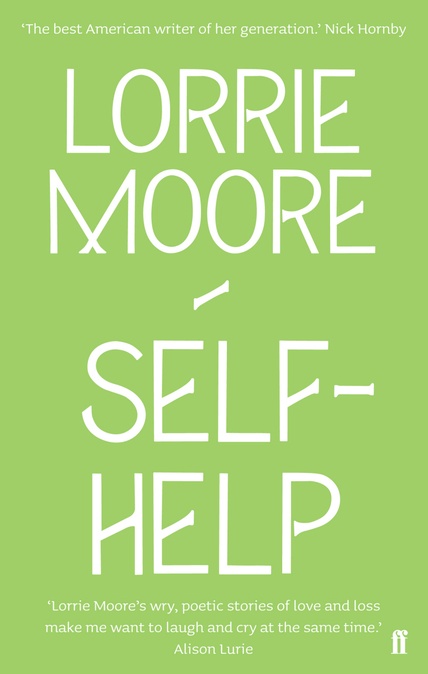
photo by Doug Wheller
by Tracy Maylath
Never write in the second-person. It’s irritating. It distracts from the story. It’s tricksy. It’s contrived. Your readers will hate you before they’ve even got to the second sentence. Second-person be damned.
We’ve become a second-person society. The ‘I’ is an endangered species. Watch any reality show. Watch Jerry Springer. Watch Jeremy Kyle. Wait. You are reading an essay about Lorrie Moore’s short stories. By definition you are too literate to watch reality television, much less Jerry Springer or Jeremy Kyle. You spend your spare time engrossed in literature, or curled up with a cup of tea and some literary criticism. You spend Valentine’s dinner dissecting Hegelian philosophy. You interpret, from a Freudian point of view, the meaning of your neighbour’s hot tub and his photos on Facebook of him in it with four girlfriends. You’ll taste a smidge of reality TV, a morsel of human bear-baiting, when you watch the ‘your opinion matters’ sections on the news. And that’s when you’ll notice, the ‘I’ is becoming redundant.
Everyone speaks in ‘yous’: ‘you feel’ when they mean ‘I felt’, ‘you know’ when they mean ‘I want you to understand me’. Perhaps that’s why we find it irritating in literature. Because it’s too familiar. Literature should be something other. Literature should get you out of you.
Watch this. Read the following:
You come out of the hotel, the Vraimont. Over boiling Watts the downtown sky line carries a smear of God’s Green snot. You walk left, you walk right, you are a bank rat on a busy river.
It’s Amis’ Money, of course. You know this. And, of course, it deserves some kind of respect. But it’s pretentious. It’s pompous. You’ve never been to the ‘Vraimont’. No. You’re not a bank rat on a busy anything. You don’t believe smog is like snot. God’s or anyone else’s. You would never, in fact, capitalise ‘green’ – or ‘god’ for that matter – unless you put it at the beginning of a sentence.
Or you worship Amis, you love him unconditionally. Well, with one condition. He’s a genius, but you’re not sure that second- person thing works.
Think of it as that popular television programme where the character is nothing but a voice-over until another character, his flatmate say, looks at him. Or else, if the director would like the viewer to see the character, but the character is alone, then he must look in a mirror. This is what the second-person is; you are wearing the camera on your head.
But now you’re in the habit of trying new things. Even if they scratch at you like a new wool sweater. You’ll first read three short stories in Lorrie Moore’s Self-Help: ‘How to be an Other Woman’, ‘How to Become a Writer’, and ‘How to Talk to Your Mother (Notes)’.
 You will start with ‘How to be an Other Woman’, not least because it is the first one in the collection. You will refuse to be distracted by the solipsistic tone that characterises the second-person. You will instead read it as if you are reading a journal you kept so long ago that it is as if you are reading something that happened to someone else, but the memory is yours. You don’t remember having done it, but because you are being told that you have, it makes it feel true and close. It is your story.
You will start with ‘How to be an Other Woman’, not least because it is the first one in the collection. You will refuse to be distracted by the solipsistic tone that characterises the second-person. You will instead read it as if you are reading a journal you kept so long ago that it is as if you are reading something that happened to someone else, but the memory is yours. You don’t remember having done it, but because you are being told that you have, it makes it feel true and close. It is your story.
Also – the collection isn’t called Self-Help erroneously – you are being instructed. It is as though you are attending a training course. No, not one of those where the trainer reads through a stack of OHP sheets from ten in the morning till four in the afternoon, with two fifteen-minute breaks and a half hour for lunch. Rather, this is a course where the trainer is funny, engaging, knows her subject and knows how to teach it. She concentrates on small details in ‘How to be an Other Woman’.
He has a nice chuckle, nice fingernails.
Jokes are to be avoided at all costs. They often fall flat and dent the teller’s credibility. But wordplay is good. It credits you with intelligence while raising a smile. It makes the learning go down more easily:
…you give him your “Lucky’s Lounge – Where Leisure is a Suit” matches.
She doesn’t patronise, she considers your existing knowledge:
You begin to circle, gauging each other in primordial sniffs, eyeing, sidling, keen as Basil Rathbone.
She doesn’t come across as an expert. She acknowledges when something sounds silly, and you feel all the safer, in her hands:
Glance up. Say: “It is fit for neither beast nor vegetable.”
It sounds dumb. It makes no sense.
But it is how you meet.
The timeline is linear and the steps logical, but she keeps it fresh by telling you things you’ve never heard of, interesting tidbits:
Remember what Mrs Kloosterman told the class in second grade: Just be glad you have legs.
You are in skilled hands. You are reading a writer who, in telling us ‘How to Become a Writer’, is also exposing her own weaknesses:
Much of your writing is smooth and energetic. You have, however, a ludicrous notion of plot.
Moore is telling you that this is what you have been told when you’ve tried to become a writer. She is also informing us that this is what she has been told when trying to become a writer. She is on your side.
Her sense of plot is unusual. It comes in fits and starts. But this doesn’t mean it’s ludicrous. It means that she reveals plot through character, through items, through place. As the other woman, you first meet your lover while perusing the windows of the shoe store Florsheims. It becomes the place where your lover suggests getting together. The store suggests a lack of of comfort. Your  character, Charlene, is always on the move, forever uncomfortable. You, as Charlene, move from Florsheims to Barnes and Noble, on your own. As a secretary, you joke that you are actually a ‘sedentary’, but you aren’t. You are forever walking in the cold, measuring out the streets of Manhattan by footsteps. Until the end, when the clocks stop. You’re not sure whether this is a good thing or a bad one, but the plot has led you to this point. While it is not a surprising ending, it is shocking in its mundanity. What other stories about love affairs can you think of that end with the word ‘fine’?
character, Charlene, is always on the move, forever uncomfortable. You, as Charlene, move from Florsheims to Barnes and Noble, on your own. As a secretary, you joke that you are actually a ‘sedentary’, but you aren’t. You are forever walking in the cold, measuring out the streets of Manhattan by footsteps. Until the end, when the clocks stop. You’re not sure whether this is a good thing or a bad one, but the plot has led you to this point. While it is not a surprising ending, it is shocking in its mundanity. What other stories about love affairs can you think of that end with the word ‘fine’?
Plot is the least interesting aspect of Moore’s stories. Ask the question that always gets asked by parents, by friends, by your teachers when you tell them you have been reading or writing: ‘what is it about?’ That isn’t the point. ‘How to Talk to Your Mother (Notes)’ is about a woman witnessing the debilitation of her aging mother, while watching other women become mothers, and never (though very much by choice) becoming a mother herself. ‘How to be an Other Woman’ and ‘How to Become a Writer’ are about… well, a woman becoming the other woman, and a woman who doesn’t, as far as you know, become a writer.
The really good stuff is character. And you are the main one. Charlene. Francie. Virginia (Ginny).
Now that you know you are the main character, you can sit back and enjoy the way you are able to manipulate words. You stretch language as though you are using it like balloons to fashion tri-coloured daisies and sweet, boggle-eyed puppies.
When you were six you thought mistress meant to put your shoes on the wrong feet.
The next time he phones he says: “I was having a dream about you and suddenly I woke up with a jerk…”
Say: “Yeah, I hate to wake up with jerks.”
You now feel as though you have been the other woman. You feel as though you could be a childless woman who can watch her mother succumb to dementia. You’re equipped to become a (potentially unsuccessful) writer. You also know that you will never write from the second-person point of view. It’s irritating. It’s tricksy. It’s contrived. The hatred is becoming pathological. You vow to get yourself some help.


I really enjoyed reading this. Thanks Tracy. I must look for the book.
Excellent essay. I am quoting the opener in a paper I am giving on the second-person POV in Spain on Thursday. My novel YOU was written in the second-person – Tracy, I bet you’d love it 😉
Thank you for your kind comments! Nuala, best of luck with the paper you are giving tomorrow. I’d love to read it, and your novel. Tracy
You’re so right. Moore is pure pleasure (and pain – I often cry) to read, exhilarating balloon-moulding fun with words as you so brilliantly put it.
Great article.